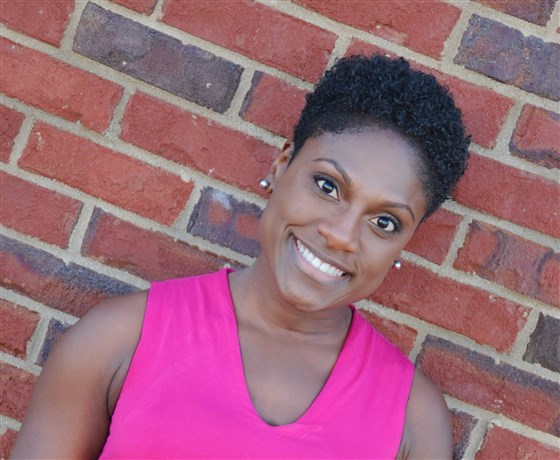
Research says that women are more likely than men at every age level to listen to the judgmental thoughts in their brains, which begs the question: how can young women effectively turn down the volume on self-doubt in order to push forward?
Many young women have experienced episodes of self-doubt in school, work and beyond, which leave them feeling insecure about the sufficiency of their skills to carry them through new or challenging situations. Years ago, I certainly felt a wave of uncertainty before I delivered my first presentation as a professional speaker to an audience of more than 750 young leaders in Charleston, South Carolina. Would I be able to connect with the audience? Would the words come out as I had written them? Are the strategies I’m sharing good enough?
Self-doubt is part of the human experience and can be expected to surface as young women transition through new life stages or take on different professional roles. But, it can also do much more than simply show up. When left unchecked, self-doubt can mutate into a debilitating condition that hijacks your choices and controls your life. Research says that women are more likely than men at every age level to listen to the judgmental thoughts in their brains, which begs the question: how can young women effectively turn down the volume on self-doubt in order to push forward?
Here are three exercises, backed by science, that can help young women overcome self-doubt.
Be fully in the present moment.
When self-doubt creeps up, it can usurp all of your attention, making it difficult to focus on anything else. Self-doubt is known for having the capacity to transport you to a past experience when you came up short or made a mistake, and it can leave you ruminating about your inadequacies.
A proven strategy to manage the spiraling effects that often accompany self-doubt is to intentionally shift your awareness to the present moment — to see the birds playing outside your window, to smell the curry lingering from your lunch, to notice each breath you inhale. Research has long supported the role of attention and awareness in the “maintenance and enhancement of psychological and behavioral functioning.” Being in the present moment offers an opportunity to establish calmness and communication with yourself about how you are feeling.
Erica Cheung, a NYC-based Senior Brand Manager for Violife, often turns to the present moment to reset her energy during a bout with self-doubt. “I take deep breaths. I stomp my feet and turn around in circles until I feel like I’ve physically shaken out the negative vibes,” she said.

According to neuroscientist Dr. Tara Swart, engaging with the physical sensations of the present moment can help to quiet “brain chatter” and refocus your attention to the now rather than on previous or imagined mistakes.
In addition to being in the present, you can also find the inspiration to overcome self-doubt by reflecting on the right moments from the past.
Remember what you’ve already overcome.
When self-doubt pressures you to drive along memory lane to revisit experiences from your past, it is important that you maintain control of the steering wheel and guide your thoughts to those events that are capable of helping you restore faith in your abilities. This means, the experiences you reflect on should offer up inspiration and direct your thoughts in a positive orientation.
According to research by psychology professor Barbara Fredrickson, positive thinking helps to broaden your attention, enabling you to elevate and widen your range of perceptions and ideas. And, when you expand your outlook, you effectively open up space to discover and leverage the personal resources needed to side step self-doubt.
For Constance Jones, CEO of Noble Network of Charter Schools in Chicago, the process of overcoming self-doubt begins with reflecting on significant challenges she conquered in her past.

“I ask myself the question: are these things a challenge now? The answer is always no,” she said. Reflection exercises like these help Jones to remember times when she didn’t believe she had the appropriate skills and confidence to navigate through the murkiness of self-doubt, yet she always did. Similar to Jones, Ericka Tarrant, a training and development manager in Columbia, South Carolina, often recalls past obstacles with successful outcomes to “generate energy and confidence” as a way to combat self-doubt in the face of a new challenge.
For Jones and Tarrant, drawing inspiration from the past provides them with a positive filter through which to reframe their response to self-inflicted doubt. But, sometimes, managing and overcoming self-doubt requires you to tell yourself a different story.
Tell yourself the truth.
Self-doubt doesn’t usually tell the truth. It, instead, offers an exaggeration of negative potential outcomes as a way for your brain to assume some level of control over the uncertainty that looms. One way to neutralize these mental exaggerations is to tell yourself the truth — that you are intelligent and capable. The illusory truth effect, which holds that you are more likely to believe false information to be correct after repeated exposure, highlights the importance of countering the voice of self-doubt with another, more inspiring one. What you frequently hear, and thereby listen to, can be staggeringly persuasive.
Elandria Charles, a non-profit executive based in New York City, uses truth-telling as a go-to exercise to disarm the overwhelming unease that self-doubt can bring on. “I make a habit out of telling myself that my value is completely separate from my doubt or fear.” This disconnection helps Charles to maintain her self-worth even when self-doubt pays her a sudden visit.
Telling yourself the truth is an action generated from knowing your truth. If a sense of personal truth feels like an elusive concept to you, you may find it helpful to allocate time for introspection to discover and recognize your power.
The Takeaway
Self-doubt is a normal part of the human experience, but it’s important for young women to prevent it from morphing into mental paralysis. Young women can keep self-doubt in check by focusing on the present moment. Doing so can effectively drown out disempowering brain chatter. In addition, young women can direct their attention to past experiences where they successfully overcame significant challenges. Remembering their successes can remind them of the skills and abilities available to apply to new obstacles. Lastly, young women can make concerted efforts to tell themselves the truth to counter the exaggerated voice of negativity that can come from self-doubt.








